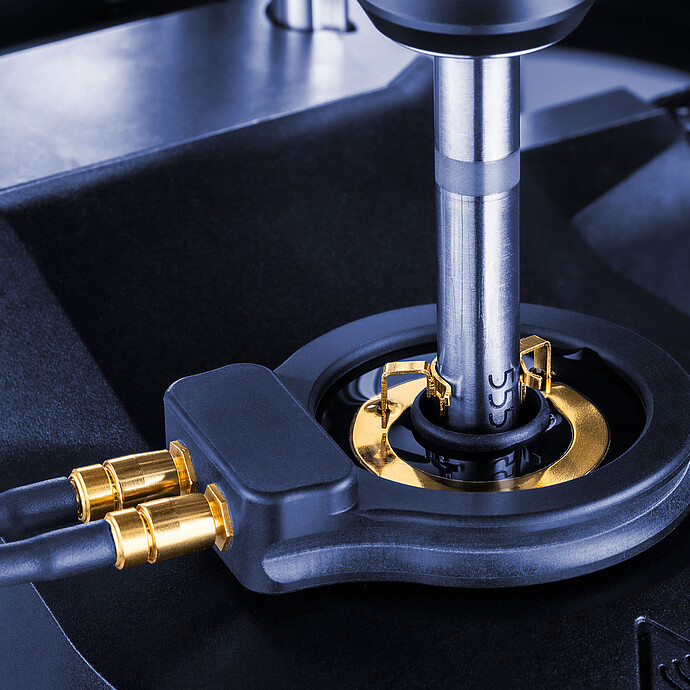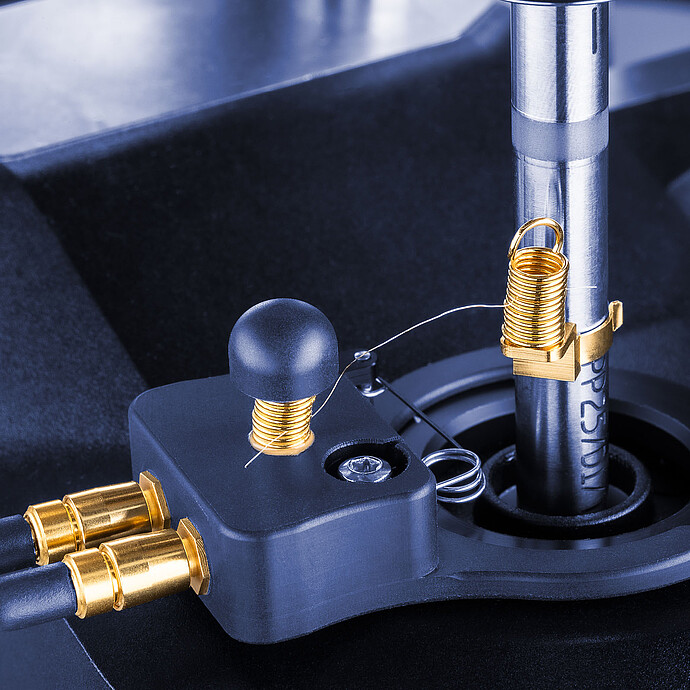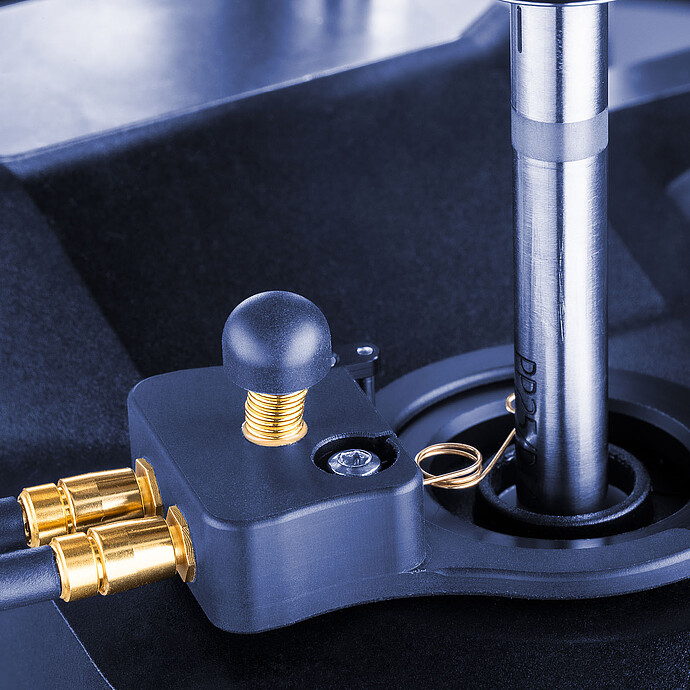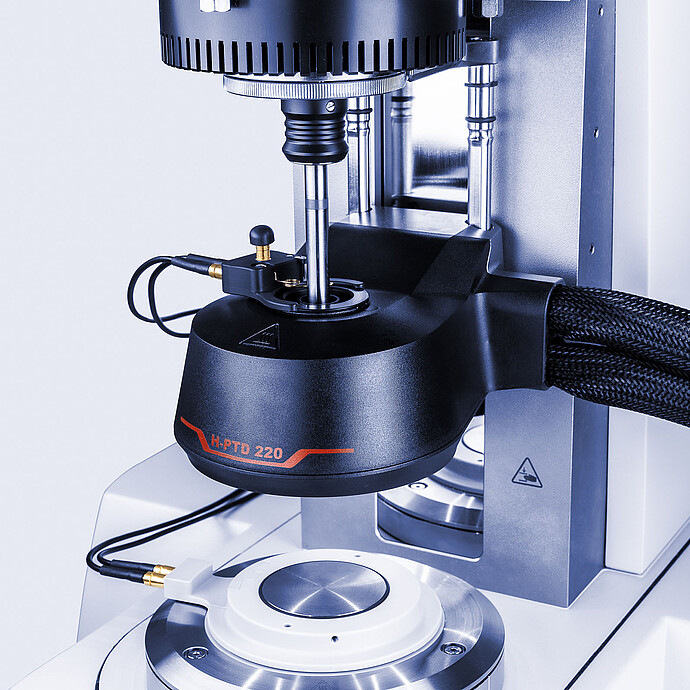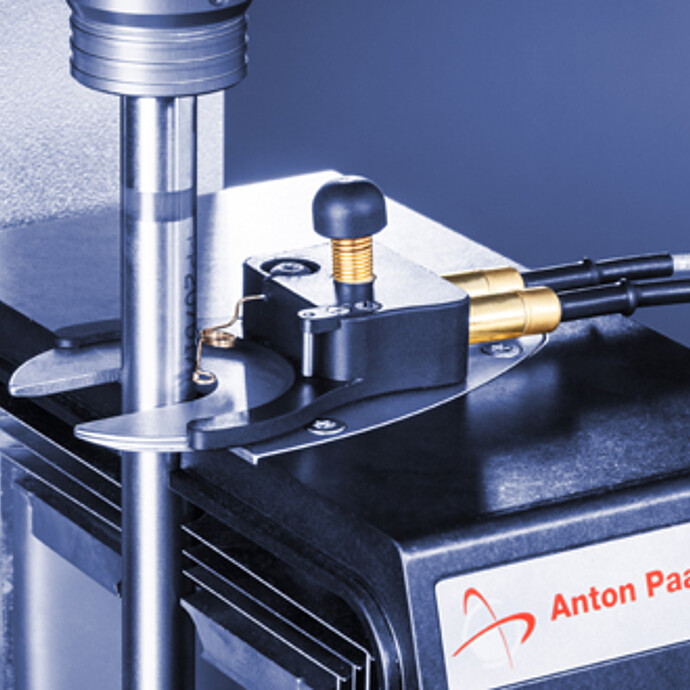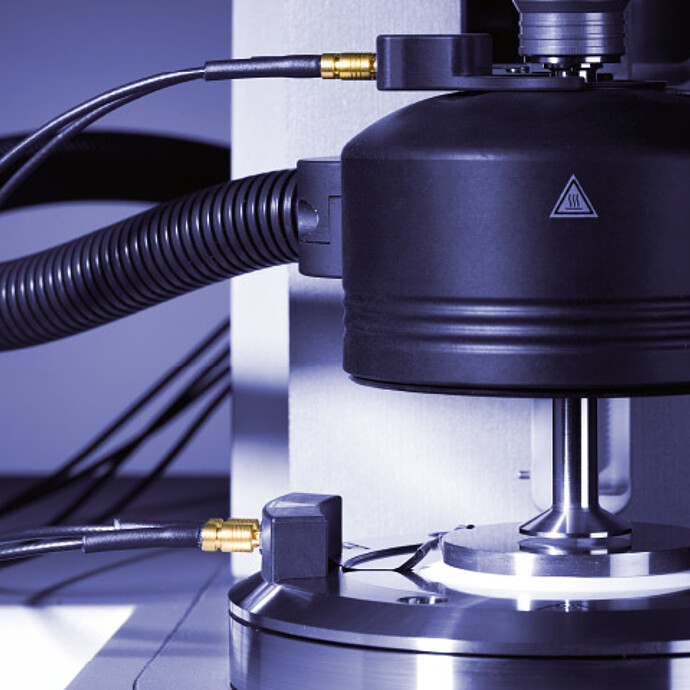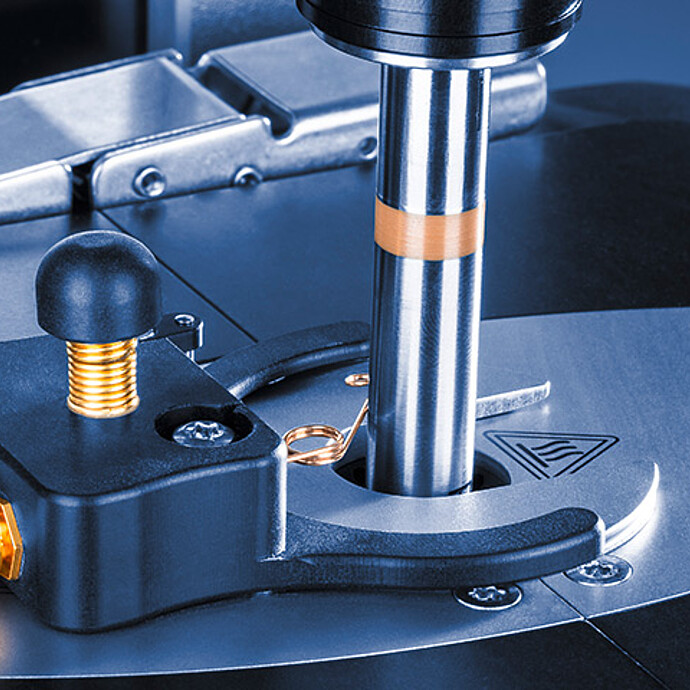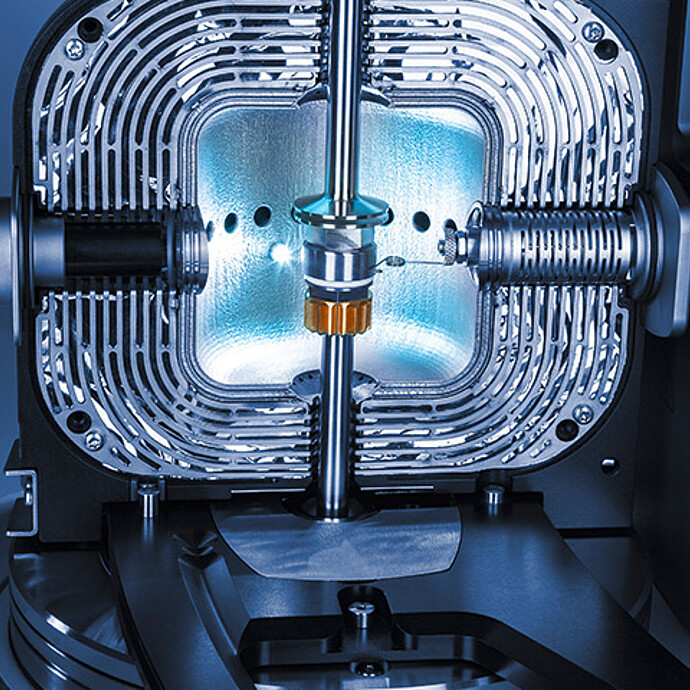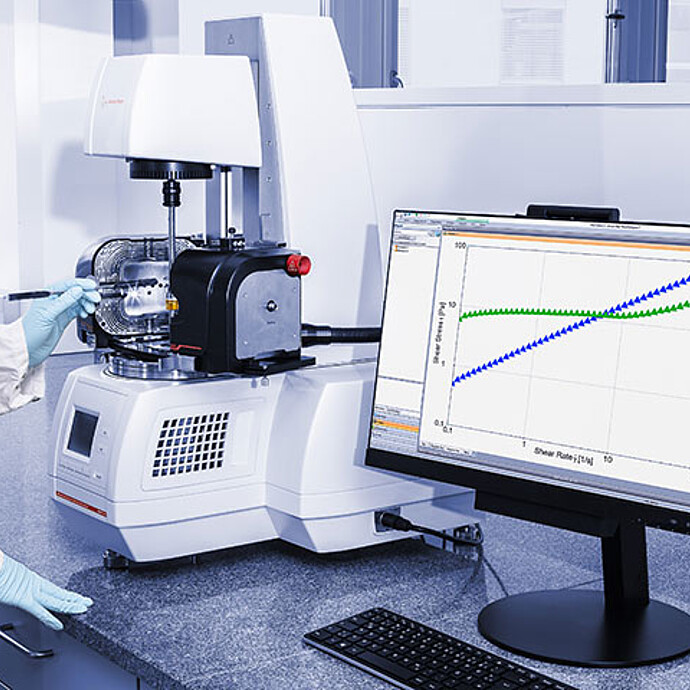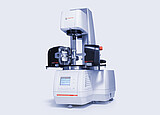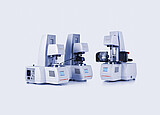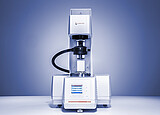Accessory for MCR:
Dielectric Spectrometer
- Combine rheology and dielectric spectroscopy
- Study a material’s response to an applied electric field
- Gain information on a material’s structure and behavior
Our Dielectro-Rheological Device (DRD) is a dielectric spectrometer that combines rheology (as a mechanical spectroscopy method) and dielectric spectroscopy, to give you deeper insight into your sample’s behavior while an electric field is applied.
Key features
Dielectric spectrometers that extend your capabilities
- Enable simultaneous dielectric and impedance analysis of dielectric and conductive materials, and rheological measurements
- Investigate the influence of mechanical deformation on the conductivity, capacity, and permittivity of the sample
- Extend your MCR rheometer to a measurable frequency range
- Perform stand-alone dielectric spectrometry measurements
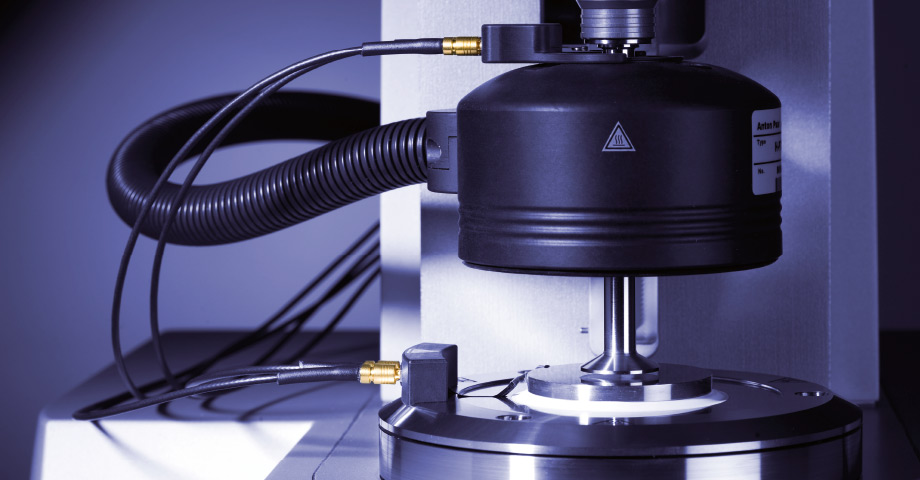
Combined methods for more sample information with the Dielectric Spectrometer
- Use both mechanical and dielectric spectroscopy for deeper insight into your sample’s behavior
- Detect and monitor structural changes in curing materials or temperature-related phase transitions
- Obtain deeper insights into the microstructure of complex materials such as battery slurries, EV lubrication fluids and adhesives, polymers, bio-materials, cosmetics, and food.
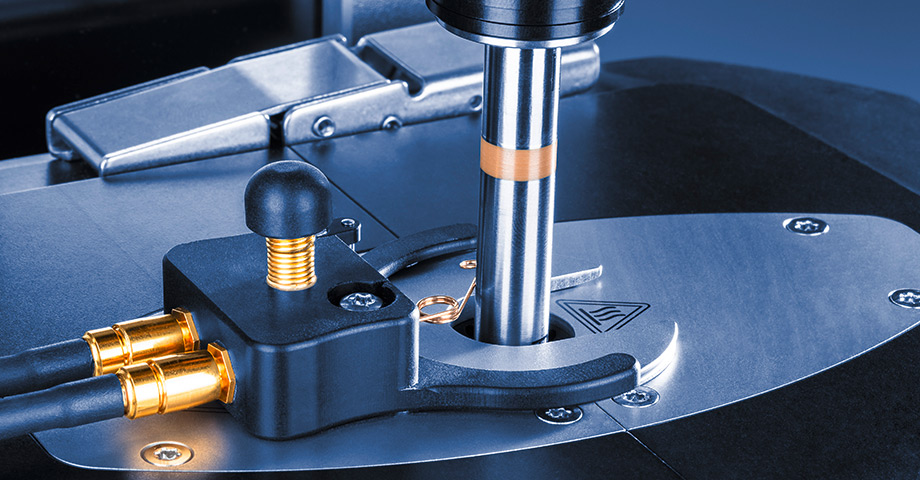
Modular MCR rheometers for any challenge
- Use the Dielectric Spectrometer at temperatures between -160 °C and +600 °C
- Use one of several contact options depending on temperature range and application:
- Spring contact for rotational tests
- Wire-shaft contact for oscillatory tests
- Electrolyte contact in the range from -50 °C to +100 °C for oscillatory and rotational tests
- Mount the Dielectric Spectrometer DRD on a convection temperature device (CTD)
- Conduct measurements in single-drive and TwinDrive mode
- Combine various LCR meters and impedance analyzers depending on the application and required frequency range
- Take pictures and record videos of the sample with the Digital Eye Camera in the CTD (optional)
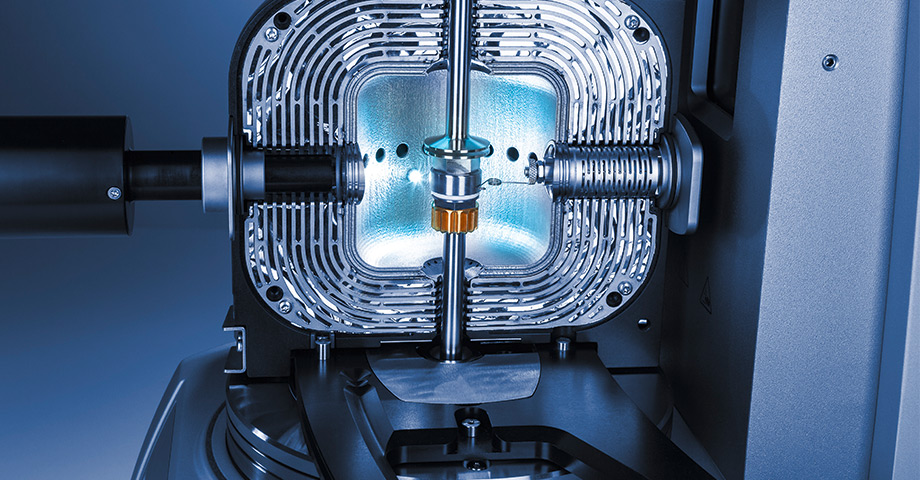
Features that simplify your measurements
- Ensure flexible test programming in rotation and oscillation mode with the RheoCompass software
- Use the RheoCompass software for automatic data transfer with selected LCR Meters, calibration, measurement synchronization and analysis along with the display of rheological and dielectric spectrometry data (including master curve generation)
- Benefit from automatic recognition and configuration of all connected devices and measuring geometries with Toolmaster
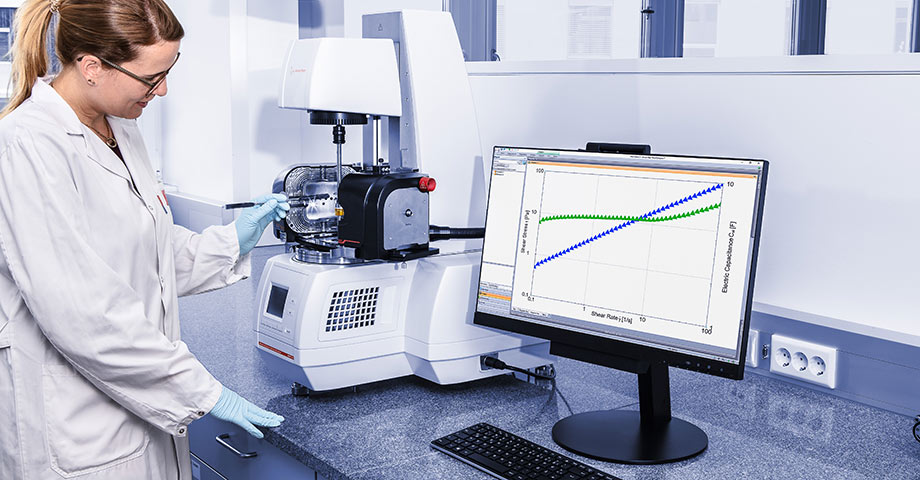
Specifications
| Technical Data | Dielectric Option for P-PTD 220 | Dielectric Option for CTD 180, CTD 450 TDR, CTD 600 MDR |
| Temperature range | -40 °C to +220 °C (CMT) Electrolyte contact -40 °C to +100 °C | Spring and wire-shaft contact: -160 °C to +600 °C (SMT, CMT, counter-rotation) Electrolyte contact -50 °C to +100 °C |
| Contact options | Spring contact Electrolyte contact Wire-shaft clip | Spring contact Electrolyte contact Wire-shaft clip |
| Min. measurable capacitance | Depending on contact option used and measuring temperature | Depending on contact option used and measuring temperature |
| Frequency range | Depending on the LCR meter | Depending on the LCR meter |
| Voltage range | Depending on the LCR meter | Depending on the LCR meter |
| Measuring systems | Parallel-plate (PP, made of titanium), disposable PP | Parallel-plate (PP, made of titanium), disposable PP |
Anton Paar Certified Service
- More than 350 manufacturer-certified technical experts worldwide
- Qualified support in your local language
- Protection for your investment throughout its lifecycle
- 3-year warranty
Documents
-
Combined rheological methods - From rheo-optics to magneto-rheology and beyond Application Reports
-
Dielectric Rheological Device Application Reports
-
Dielectric Spectroscopy Combined with High-Temperature Rheology Application Reports
-
Instruments - MCRxx2 Evolution series Brochures
-
Dielectrical Measuring Cell Manuals
